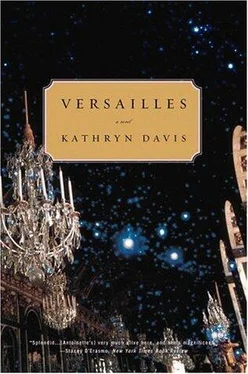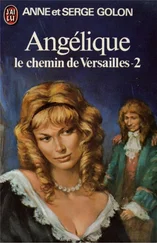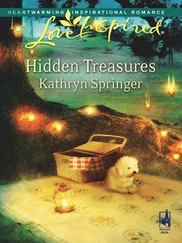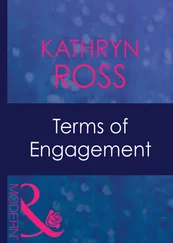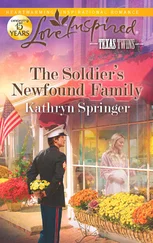Kathryn Davis - Versailles
Здесь есть возможность читать онлайн «Kathryn Davis - Versailles» весь текст электронной книги совершенно бесплатно (целиком полную версию без сокращений). В некоторых случаях можно слушать аудио, скачать через торрент в формате fb2 и присутствует краткое содержание. Год выпуска: 2003, Издательство: Back Bay Books, Жанр: Историческая проза, на английском языке. Описание произведения, (предисловие) а так же отзывы посетителей доступны на портале библиотеки ЛибКат.
- Название:Versailles
- Автор:
- Издательство:Back Bay Books
- Жанр:
- Год:2003
- ISBN:нет данных
- Рейтинг книги:4 / 5. Голосов: 1
-
Избранное:Добавить в избранное
- Отзывы:
-
Ваша оценка:
- 80
- 1
- 2
- 3
- 4
- 5
Versailles: краткое содержание, описание и аннотация
Предлагаем к чтению аннотацию, описание, краткое содержание или предисловие (зависит от того, что написал сам автор книги «Versailles»). Если вы не нашли необходимую информацию о книге — напишите в комментариях, мы постараемся отыскать её.
Versailles — читать онлайн бесплатно полную книгу (весь текст) целиком
Ниже представлен текст книги, разбитый по страницам. Система сохранения места последней прочитанной страницы, позволяет с удобством читать онлайн бесплатно книгу «Versailles», без необходимости каждый раз заново искать на чём Вы остановились. Поставьте закладку, и сможете в любой момент перейти на страницу, на которой закончили чтение.
Интервал:
Закладка:
Seventeen arcades, each with eighteen mirrors. Three hundred six mirrors and in every one of them no Antoinette.
A note about the author
Kathryn Davis is also the author of the novels Labrador, The Girl Who Trod on a Loaf, Hell, and The Walking Tour. She has received a Janet Heidinger Kafka Prize for fiction by an American woman, the Morton Dauwen Zabel Award from the American Academy of Arts and Letters, and a Guggenheim Fellowship. She teaches at Skidmore College in Saratoga Springs, New York, and lives in Vermont and New York with her husband and their daughter.
A Reading Group Guide Versailles
A NOVEL BY
KATHRYN DAVIS
Kathryn Davis: on writing Versailles
What could be less hospitable to the writer of fiction than the prospect of telling a story whose ending everyone already knows? And really, if there's one thing everyone knows about Marie Antoinette — aside from the "let them eat cake line," which is, by the way, apocryphal — it's what finally became of that famous neck of hers. If you already know the ending of a story, what is going to keep you reading the book? What becomes of suspense, that mysterious element that makes you itch to turn the page, that keeps you up until all hours of the night, the birds beginning to chirp and the first light of dawn beginning to leak through your blinds and there you still are, wide awake, dying to find out what is at last going to become of poor pockmarked Esther Summerson or poor blind Mr. Rochester?
Of course, this doesn't account for the fact that when you reread a beloved book you already know that Esther will end up married to her darling Mr. Jarndyce and that Mr. Rochester will end up married to his darling Jane Eyre. You know what's going to happen, and yet it seems to me you still experience a version of suspense — a different kind of suspense, generated, I think, by the way you willingly abandon yourself into the hands of the writer, almost as if you've chosen to no longer remember the outcome or, remembering it, to let yourself be resistlessly ferried toward it. A different kind of suspense, but suspense nonetheless. Why else do you find yourself wishing, every time you read Romeo and Juliet, that the outcome will be different?
In any case, I knew that if I wanted to tell the story of Marie Antoinette I had to find a way of getting around the suspense problem.
But why, you might ask, would I even want to tell the story of Marie Antoinette?
Let me begin by explaining how the idea came to me. It was 1998, my daughter Daphne's junior year in high school, and we were headed to Paris for her spring vacation. This was where my daughter and husband thought we should go; I preferred Italy but had been outvoted. Daphne had gotten permission to take an extra week off if she wrote a paper on a relevant topic, and she'd chosen Robespierre.
So there we were — April in Paris. I immediately realized I'd been crazy to oppose this plan; I immediately fell deeply in love with the city. What had possessed me to think I didn't like Paris? The fact that I was charged an exorbitant amount of money for a slice of melon I ate in a Right Bank restaurant one August almost thirty-five years earlier? Now the trees were just coming into leaf, the bulbs coming up. In the morning all the gutters in my neighborhood ran clean with water; tiny dogs peeked out from the unbuttoned tops of people's spring coats; and in the market I could watch a man eviscerate bright yellow chickens, the justly famous Poulets de Bresse, pulling their innards out on a single glistening string like a magician pulling scarves from thin air. I adored Paris.
Adored it so much that when my daughter suggested a trip to Versailles I once again dragged my heels. I know this doesn't make me look good. I'd been to Versailles — that same August of the overpriced melon — and I'd hated it. I'd been, at the time, a sort of fledgling beatnik, digesting my first taste of existentialist philosophy — no wonder I found it oppressively ornate, overwhelmingly claustrophobic. "Let's go shopping," I suggested to my fashion-loving daughter, but she dug in her heels.
And so I found myself at Versailles. I found myself in the gardens of Versailles, and I was transported.
Walking down the sun-dappled allées, past the Grand Canal, the momentarily dormant fountains (about which more later) — I had that feeling I always have when I know I want to write about something. It's like when you fall in love. You sink so deeply into your dream of the love object that at least for a spell you don't know where the loved one ends and you begin.
I knew I wanted to dwell in Versailles the way you get to dwell in whatever landscape becomes the subject of your fiction — the way you get to dwell in your beloved's heart. I knew I wanted to wake up at my farmhouse in Vermont, and then sit at my desk and be once again walking down those allées, along the Tapis Vert, watching the sun glint off the little frogs in the basin of the Latona fountain. Of course, at the time I didn't know any of those names. I hadn't even gone inside the chateau yet — I hadn't even bought a guidebook.
We returned to Paris; I was already sunk in a dream of Versailles but without a clue about what I wanted to do with the place. And then, once again, my daughter intervened. (There's a good reason this book is dedicated to her….) Daphne wanted to visit the Conciergerie, where Marie Antoinette, as well as many other doomed members of the nobility, awaited their trip to the guillotine. Once again, I dragged my heels. I hate visiting historic sites. "Let's go shopping," I said. (I did.) Daphne reminded me of her school project. And so we went.
And it was there in the Conciergerie, looking at the teeny tiny squalid room where Marie Antoinette — the same Marie Antoinette who had lived in the glorious immensity of the Palace of Versailles — had spent her last days on earth, that I knew what I wanted to write about. I wanted to write about Marie Antoinette. But I wanted, equally, to write about Versailles.
I didn't want to write a historical novel, no. I wanted to write a book about that life, that place— and I wanted to write about them in such a way that the reader would end up thinking about the animating spirit, about whatever it is that animates any container, whether a body or a building, that makes it so absolutely what it is and nothing else. In that way, though this book is very different from any of my other books, it is also the same. It's the same because, like most writers, I have one particular thing I can't stop thinking about, wondering about, and in my case it's the animating spirit of a thing, what we also call the soul.
So, to get back to my very first question—"What could be less hospitable to the writer of fiction than to tell a story whose ending everyone already knows?" — I soon realized, once I knew I wanted to write about Marie Antoinette and Versailles, that the best way around the problem was to focus not on the mystery of her actual ending, but on the mystery of what it actually means to live a life. I remembered a TV show I'd seen when I was very young. It was a dramatic presentation, maybe Playhouse 90 or something similar. Sort of Twilight Zone-ish, but before The Twilight Zone existed. Two little children were in a very big house, and as they moved from room to room, they got older and older, until finally they opened one last door, and… but the TV producers dared go no further. And I thought I'd like my book to be like that TV show, only more daring: that I'd like to tell Antoinette's story by moving her from room to room of Versailles, time passing with each move, so that the whole book would be infused with a sense of impending mortality.
Читать дальшеИнтервал:
Закладка:
Похожие книги на «Versailles»
Представляем Вашему вниманию похожие книги на «Versailles» списком для выбора. Мы отобрали схожую по названию и смыслу литературу в надежде предоставить читателям больше вариантов отыскать новые, интересные, ещё непрочитанные произведения.
Обсуждение, отзывы о книге «Versailles» и просто собственные мнения читателей. Оставьте ваши комментарии, напишите, что Вы думаете о произведении, его смысле или главных героях. Укажите что конкретно понравилось, а что нет, и почему Вы так считаете.
